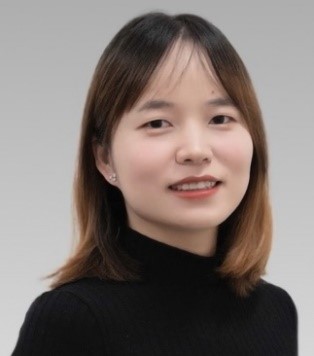Meet a CIS Member: Fangfang Zhang

Meet: Fangfang Zhang, Vice Chair of CIS Task Force on Evolutionary Scheduling and Combinatorial Optimisation
What is your title, and place of work? (or Technical Field of Research)?
I am a lecturer with the Centre for Data Science and Artificial Intelligence & School of Engineering and Computer Science, Victoria University of Wellington (VUW), Wellington, New Zealand.
How long have you been a member of CIS and what was the reason you chose to join IEEE CIS?
Starting from 2019, I have been a CIS member for over five years. Since I started my PhD, I have published a number of papers at CIS sponsored conferences, including CEC and SSCI. My initial motivation for joining CIS is to reduce the cost of attending conferences. After several years with IEEE CIS, I found that our CIS community has been providing lots of opportunities for young researchers for self-developments such as IEEE Task Forces and travel grant support for attending conferences. I have organised a number of tutorials and special sessions at CEC and SSCI.
What Computational Intelligence Society committee do you serve?
I am the Secretary of the IEEE New Zealand Central Section, and a vice chair of the IEEE CIS Task Force on Evolutionary Scheduling and Combinatorial Optimisation. I am an associate editor of the journals of Expert Systems With Applications and Swarm and Evolutionary Computation. I was the Treasurer of Young Professional Affinity Group, and the Chair of the Student Branch at VUW for the IEEE New Zealand Central Section.
What have you learned from your experience and how has it helped you professionally?
I have learned a lot of academic skills such as organising and reporting activities, and communicating with international researchers in our CIS community. First, it helps me have a better understanding of how the CIS works. Second, it provides lots of opportunities for me to build connections with experts from different countries, which broadens my horizons. Third, it improves my leadership skills so that I am able to take on more important roles in the future.
What has been the most fun/rewarding thing about being a volunteer for the IEEE Computational Intelligence Society? What have you enjoyed the most?
The most rewarding thing for me is the professional development by engaging in volunteer work such as organizing events, reviewing papers, or leading initiatives. These activities help me develop leadership, communication, and organisational skills that are valuable in both personal and professional settings.
I enjoy the networking with CIS the most. Volunteering allows people in CIS to connect with like-minded professionals, experts, and scholars in the field of computational intelligence. These connections can lead to collaborations, mentorship opportunities, and lasting friendships.
Tell us something about you that we don't know.
I am the Secretary of Women in Engineering for IEEE New Zealand Central Section. I am also the Diversity Chair of the AI Researchers Association in New Zealand. In addition, I am the project coordinator for our large MBIE SSIF program on Data Science for Aquaculture, and helping with different matters such as finance, industrial connections, workshop organisation, recruitment, and project reporting. I have been applying my AI skills to primary industries such as salmon health prediction and medical emergency dispatch. I hope I can help CIS by playing more important roles as a female.